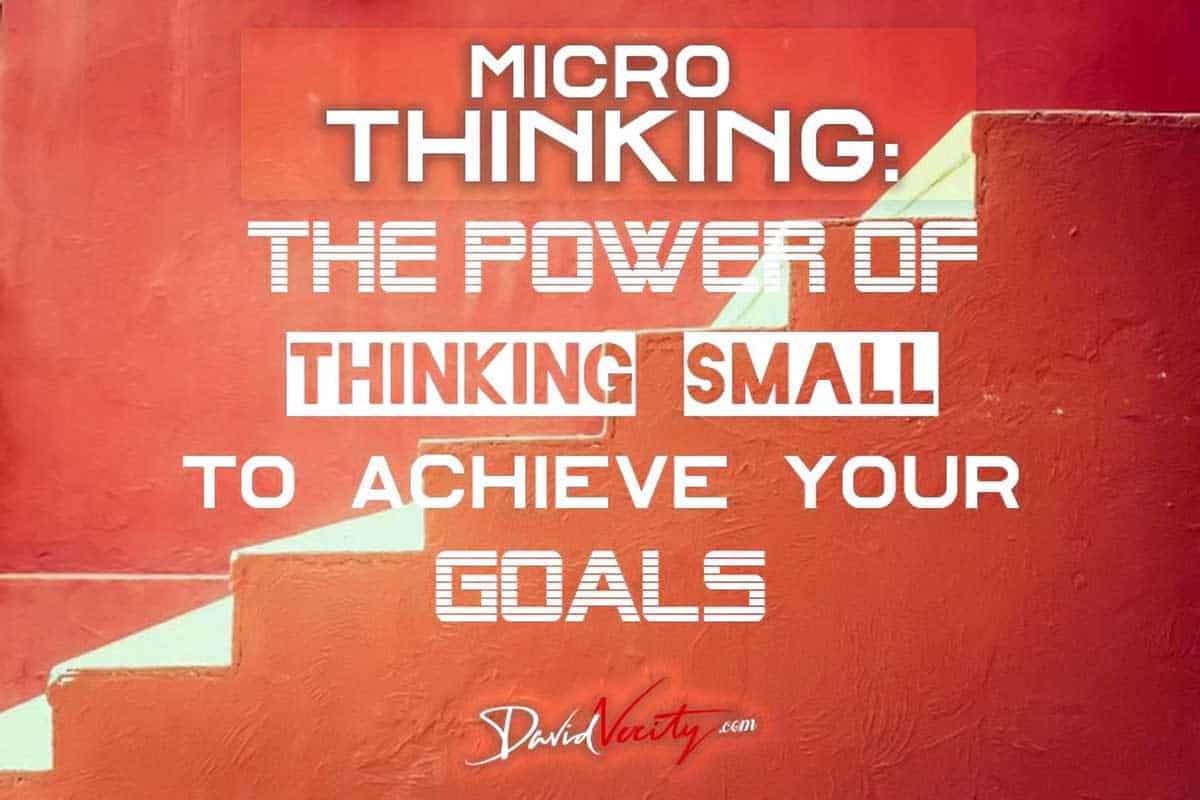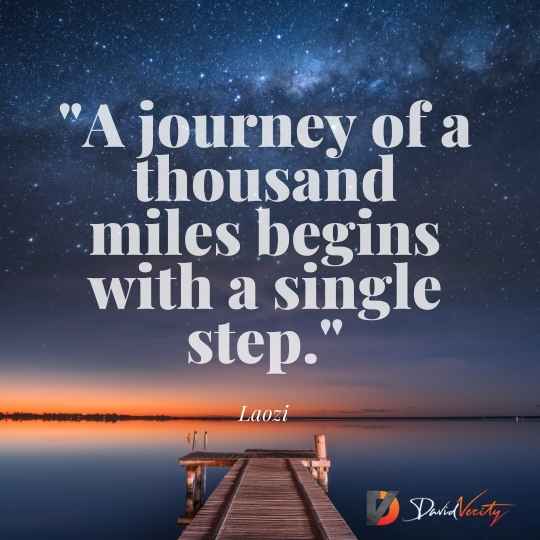
In my article on Macro Thinking, I talked about why it was so important for us to be able to think big. To zoom out and be able to see the bigger picture. But today, I want to talk about the power of thinking small, and when it might be a good idea to utilize it.
In Neuro-linguistic Programming, or NLP, this concept is known as chunking down. It allows us to break problems down to their smaller constituent parts so that we can better analyze each problem.
Micro Thinking is not only useful, it is absolutely necessary as long as you are assembling anything. If you’re ever had to put something together that came with a lot of instructions, then certainly you understand the importance of keeping everything separated and organized such as a packet of screws, so that you can assemble each section one piece at a time.
And therein lies the key for what and why it’s useful to us. Assembly.
Assembly is defined as the action of fitting together the component parts of a machine or other object. But that’s the thing. Far too often we see our goals and we think of terms of the entire thing, rather than each constituent part of the goal.
So for instance, we might think of losing weight and become incredibly discouraged between we focus on where we are now, and contrast that with where we want to be in our minds, and since there is such a wide gap, we become discouraged, and this reinforces the negative self-talk and doubt in our minds that fails to motivate us to take action in the first place. It is a vicious and insidious cycle, and so for any of us who have goals, the antidote is micro thinking.
Thinking about each step one piece at a time gives us small goals. Rather than saying “I need to build a car!”, it says, “I need to find a wheel.”
And that becomes your only goal.
Once that goal is completed, you can move on to the next goal, without focusing on the larger macro goal. It is saying, “I’m going to eat clean for 3 days.” Then, reassess how you feel and how you’re doing after those 3 days have gone by.
This is absolutely one of the biggest problems I have seen people face when it comes to being successful at anything. Because they don’t understand being able to take small steps toward a big goal, and being okay with allowing the process to take it’s course naturally, over time.
When I wrote my book, “Where In The World Is My Woosah: A Quick and Practical Guide to Less Stress and a Longer Life in a Modern World,” I didn’t say to myself, “Oh my God! I have to write this book! But I’ve never written a book! What am I to do?! There are so many pages and chapters that are going to go into this project… where do I even begin?!”
Okay, so I did actually say the last one. Where do I begin? So I decided to begin with one word, one sentence, one paragraph, one thought, one page. And that’s the key.
I grabbed my morning coffee, opened the curtains, let some sunshine in and just sat down to write. There was no magic sauce applied. I just sat down to write.
In a matter of time, the book had written itself. Simply because I had the discipline to sit down and begin writing, and I was consistent in this. I started many of my businesses or ventures this way. One book, product, song or idea at a time.
So to summarize, when it comes to success, there’s no way to have that conversation without talking about goals. And there’s no way to have a conversation about goals without steps.
On that note, I leave you with the wisdom of Chinese Philosopher Lao Tsu.


